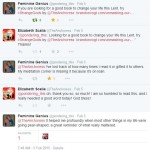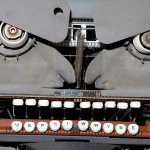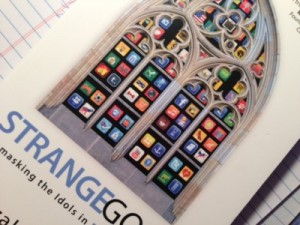
I was really disappointed to read that 85 year-old comedian, Bob Newhart — a man who managed to have not one, but two highly successful television sitcoms and end both of them on brilliant, darn near iconic notes — recently cancelled a speaking engagement rather than have to deal with being hassled.
He was to speak before a gathering of Legatus members — a group of Catholic businessfolk who try to conform both their personal and business lives to Catholic teaching.
Many of the Legatus folk are well-to-do, which in America circa 2013 means they might be morally evil people. I say might because — partly thanks to the cognitive dissonance of the New York Times, I’ve always been fuzzy on that notion about good rich and bad rich. Apparently if you’re terribly rich and very progressive — ala George Soros, John Kerry et al, — you’re the good rich, but if you’re rich and more conservative in your thinking (Koch brothers, I guess?) you’re evil.
Personally, I don’t think being rich automatically makes one good or bad, and the rich and well-connected certainly have their place in the pageant of salvation: it took a wealthy, connected man named Joseph of Arimathea to bring Christ Jesus down from the cross and get him enshrouded and entombed before sundown, on Good Friday. His help and participation have an assist to Easter, and all of its promise.
Newhart wasn’t discouraged from speaking before Legatus because they are wealthy, though. He was persuaded not to go there, because we Americans now live in a perpetual high school environment, and at the moment, the “cool kids” are telling everyone else in the cafeteria who it is okay to befriend and who is to be shunned for being, like, a social-zero. So. Uncool. What a year or two I called tolerance disconnect is now beginning to border on purposeful blacklisting. One either says the right things, at all times, and dares not debate a point, or hold to a contrasting religious belief, or even cite the inborn right one has to the freedom of one’s own conscience — of one’s own way of thinking — or one is to be shunned and bullied until one either submits or goes away.
Because if you’re not reflecting the views of the cool kids back to themselves, you must disappear.
I wrote about this a little in my book, Strange Gods, where I talk about how The Church of What’s Happening Now can have no truck with the Church of what came before.
Sadly, these high school tactics — unless the bullying cliques are called out and their power to cry “ew, cooties! Non-person alert at that table!” is negated — always devolve into something more nefarious, socially and spiritually ruinous, and out-of-alignment with a value so basic as allowing someone the freedom of their own minds.
I would be remiss if I did not acknowledge that there are all kinds of cliques in the world, and there are certainly all kinds of cliques in The High School That Has Become America. They are all certain that their thinking should be what everyone else thinks, as well, and they all have the potential to become bullies who identify an “other” and then begin a process of exclusion to which everyone is expected to conform, or risk exclusion, themselves.
It’s what happens in high school. But it says nothing good about America that her whole society is trapped there.
Kathryn Lopez quotes Bob Newhart’s commencement speech at The Catholic University of America, from a couple of years ago: “Humor makes us free,” he said. “As long as the tyrant cannot control the minds of free men, they remain free.”
I kind of wish Newhart had gotten up before the Legatus folk and expanded on those words. But Newhart is a comedian, and at 85 years of age he shouldn’t have to be looking over his shoulder to see if the bullies are going to give him a hard time for daring to talk to the social zeros as if they were people, or something. The man should be able to live in peace.
It’s the Eve of Christmas. A couple of years ago I wrote of this night,
. . .think about what God did, in a lonely cave on the outskirts of Bethlehem, when He condescended to enter into the pain and fear, the tumult and whirlwind of the world — when he “set his tent among us,” not merely “dwelling” among us as lofty king, but literally “with” us, with hunger, the capacity for injury and doubt.
God entered in, not with a cacophony of noise and a display of raw power, but as the humblest and most dependent of creatures: a baby, lying in a manger, a place for the feeding of animals. He, who became Food for the World, entered with silence, as though he had put his finger to the quivering mouth of a troubled, sobbing world and said, “shh…it is alright, I will keep you company.”
Imagine that, committing to keep us company before first discovering where we stood on every issue, and if we were loving and hating the right sort of people.
Come, Lord Jesus.











